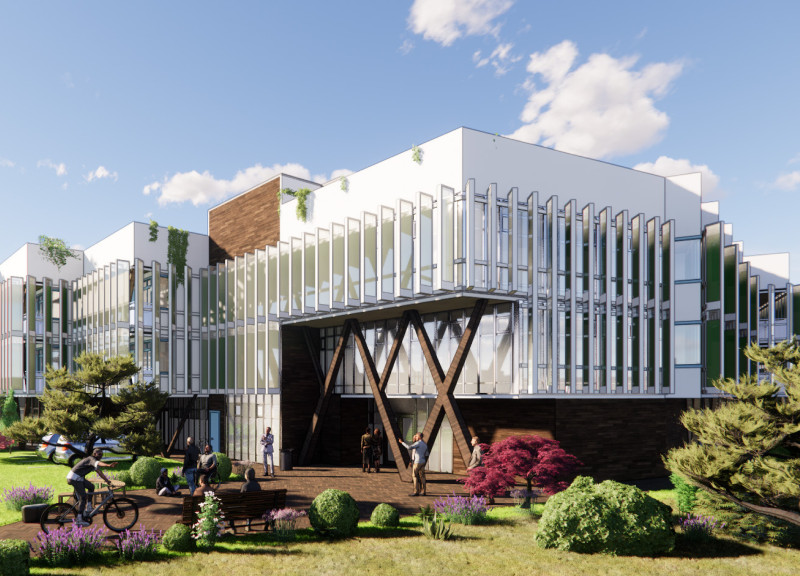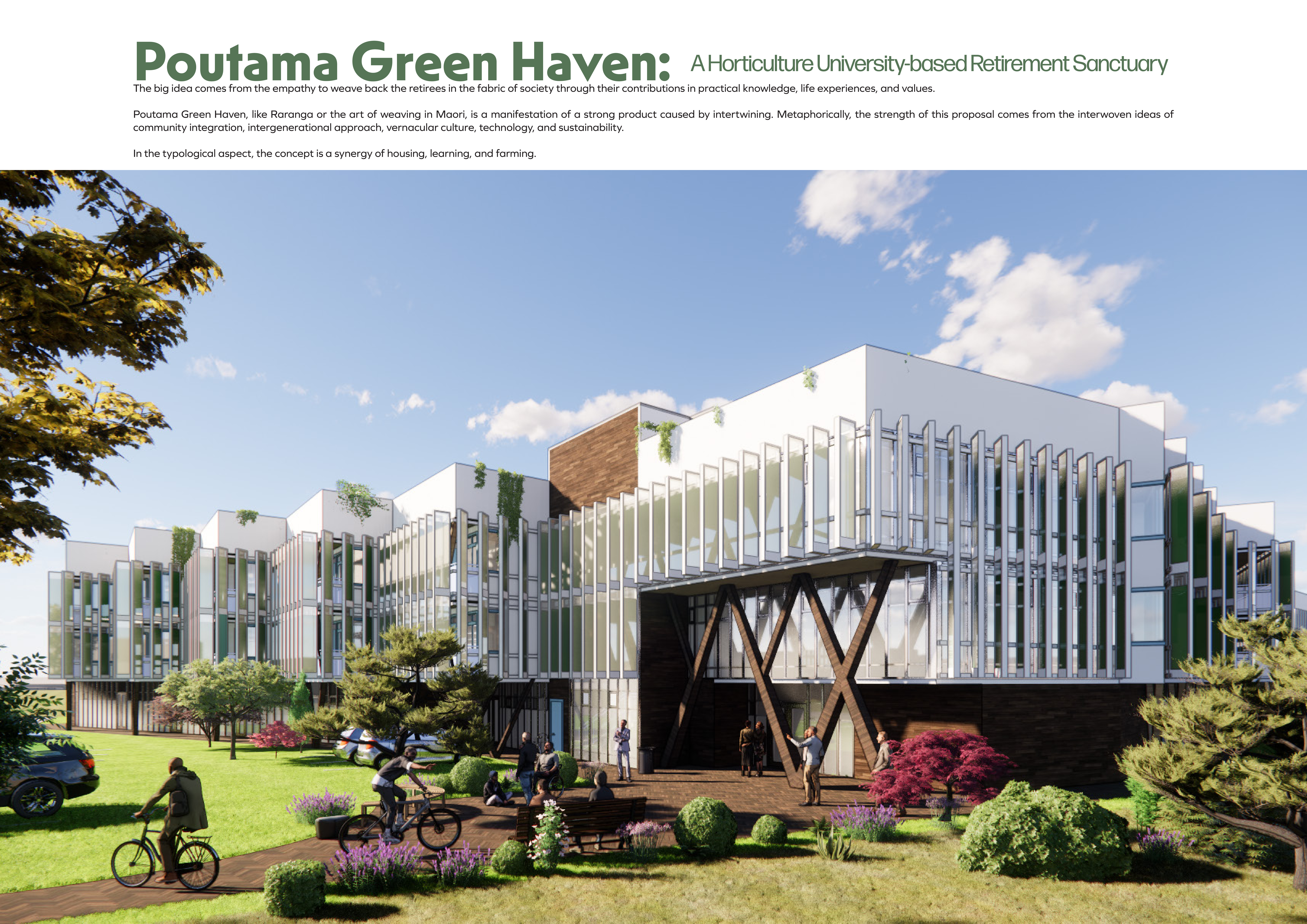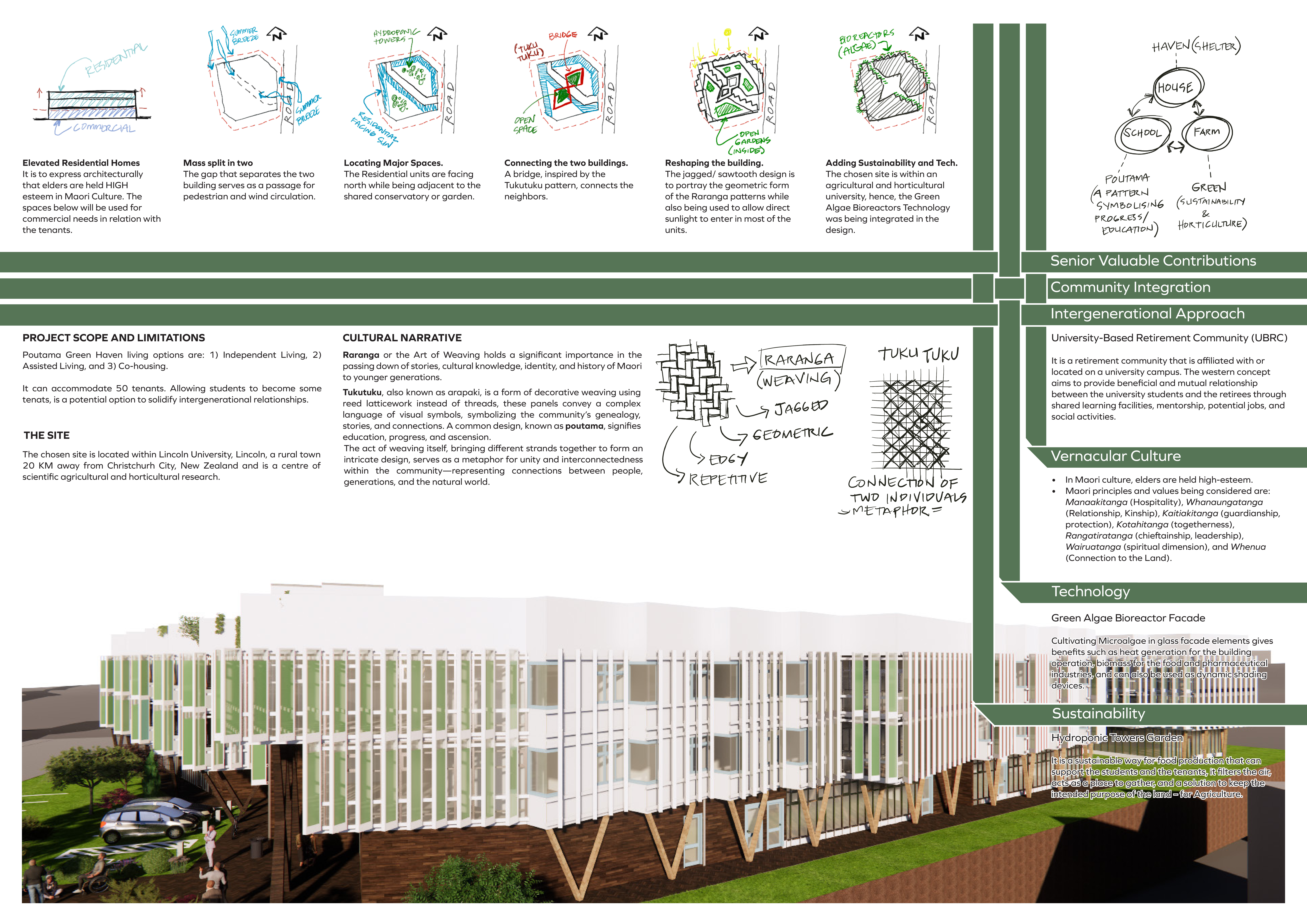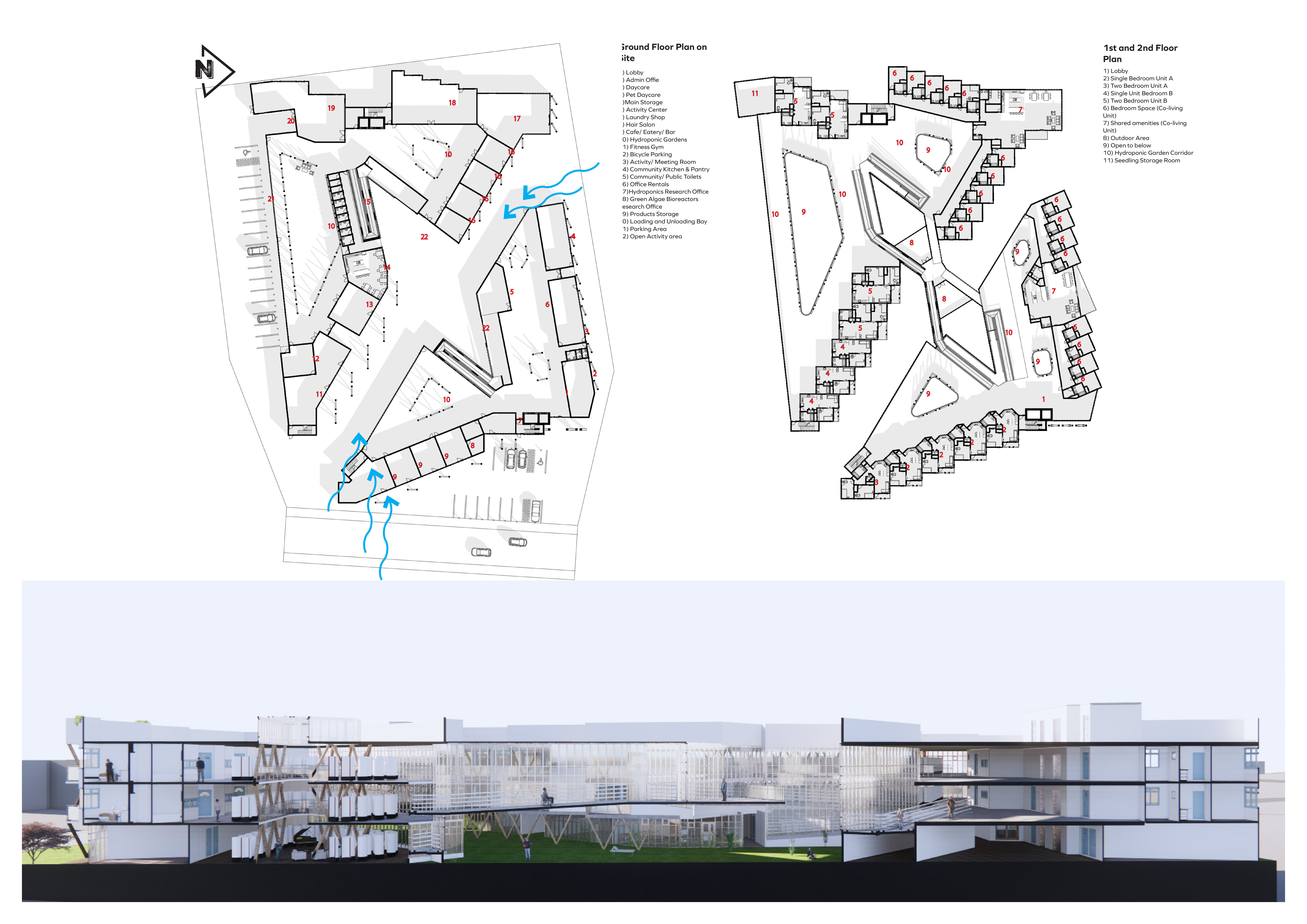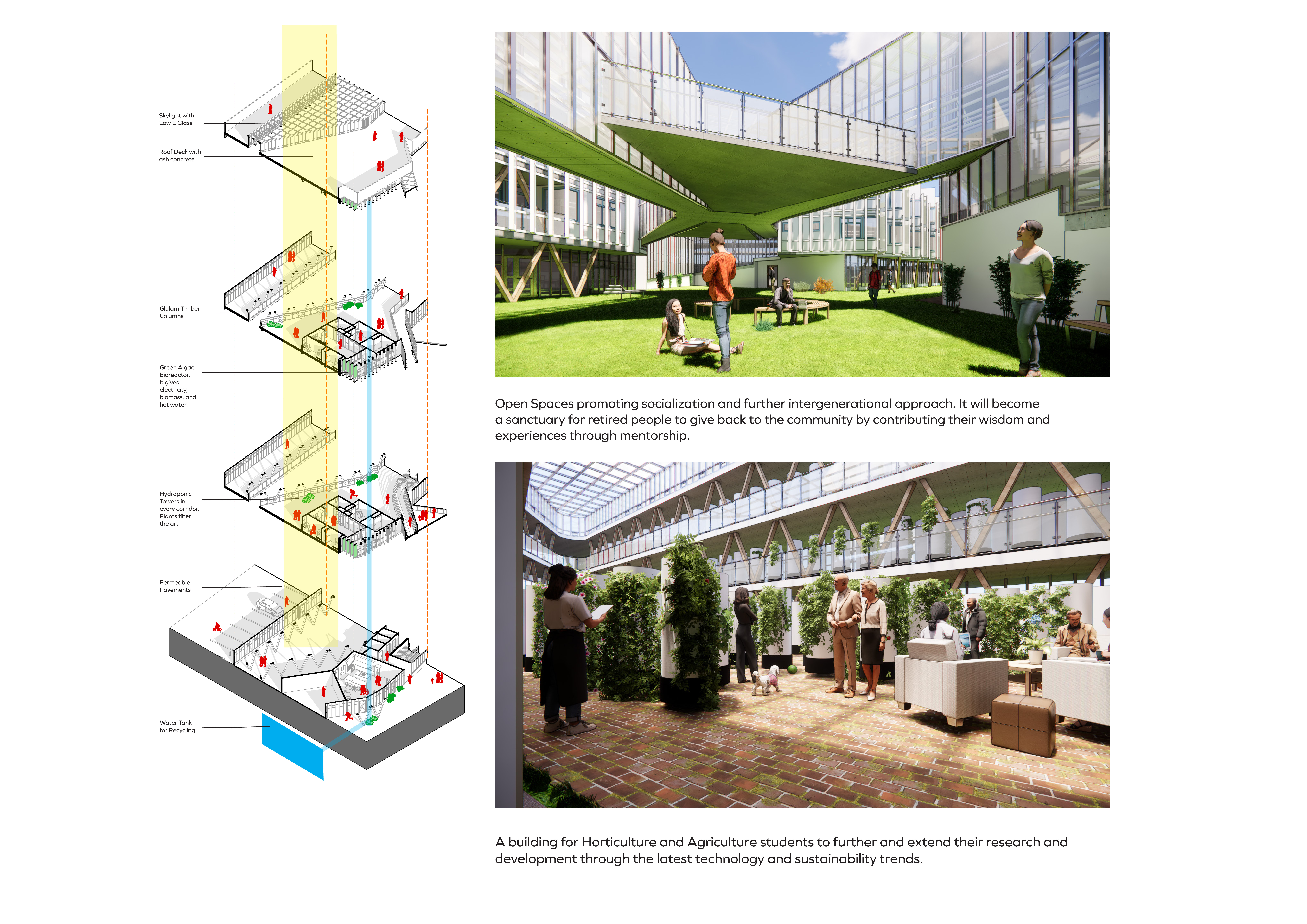5 key facts about this project
### Project Overview
Poutama Green Haven is a retirement sanctuary located adjacent to a horticulture university in Lincoln, New Zealand. The intent of this facility is to foster the integration of retirees into the community, enabling them to share their knowledge and life experiences with younger generations. Through its design, the project aims to cultivate an environment that promotes intergenerational learning and cultural exchange.
### Spatial Organization
The architectural configuration comprises two interconnected wings that provide independent living spaces alongside assisted and co-housing options. This layout encourages community interaction and supports a safe, communal environment. Interconnected courtyards facilitate movement throughout the building and enhance accessibility for both residents and visitors. Central open areas serve as focal points for social activities and mentorship programs, emphasizing the importance of community cohesion. Each residential unit is designed to face landscaped gardens, allowing for visibility toward shared outdoor spaces, which encourages engagement between residents.
### Materiality and Sustainability
The selection of materials in Poutama Green Haven balances sustainability with aesthetic considerations. Key features include glulam timber beams that provide structural integrity while contributing to a warm interior ambiance. The building's facade incorporates a green algae bio-reactor system, enhancing environmental performance and supporting energy efficiency. Hydroponic systems integrated into the garden spaces promote local agriculture and provide fresh produce for residents. High-performance window glazing, including low-E coated glass, is utilized to improve thermal efficiency and maximize natural light, further supporting the project's sustainability goals.


